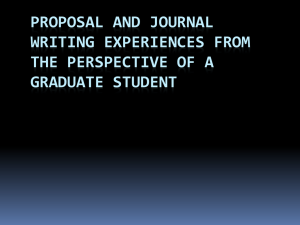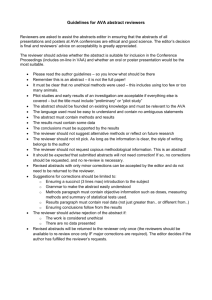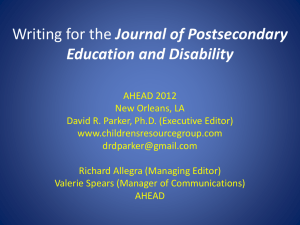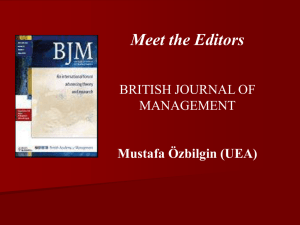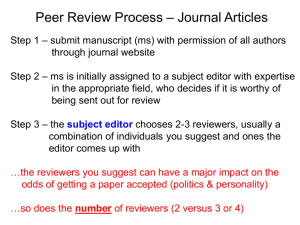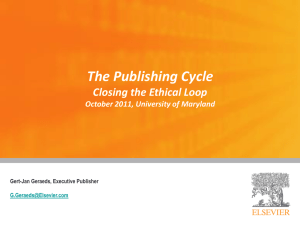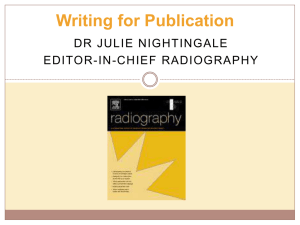Early Career Reviewer Scheme 2016
advertisement
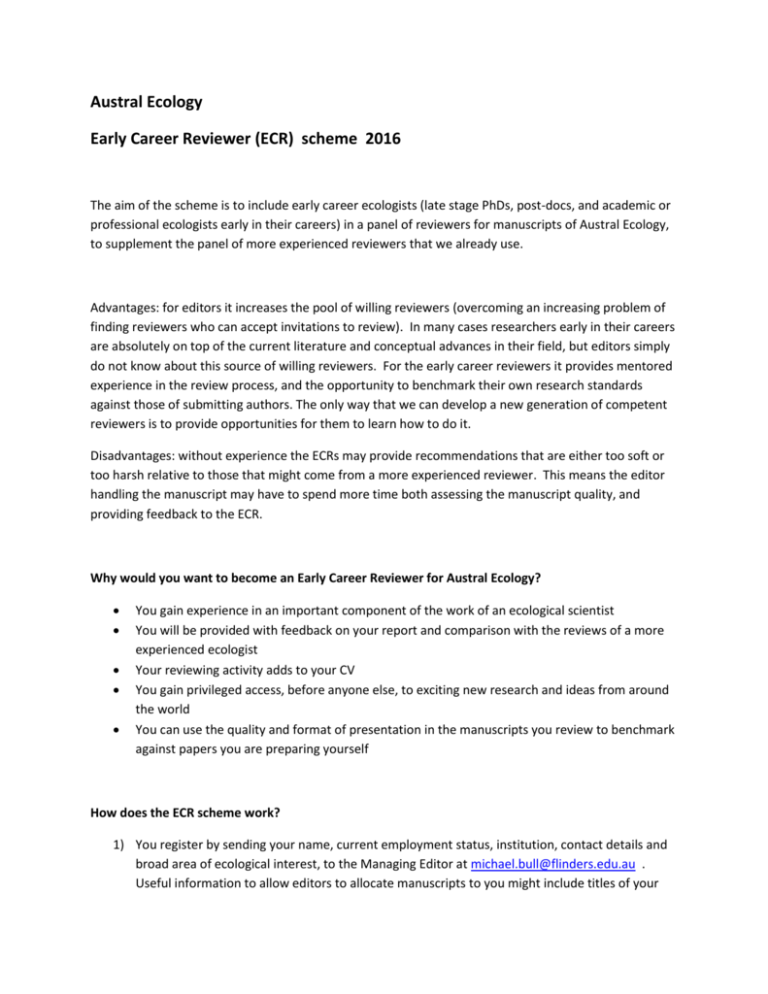
Austral Ecology Early Career Reviewer (ECR) scheme 2016 The aim of the scheme is to include early career ecologists (late stage PhDs, post-docs, and academic or professional ecologists early in their careers) in a panel of reviewers for manuscripts of Austral Ecology, to supplement the panel of more experienced reviewers that we already use. Advantages: for editors it increases the pool of willing reviewers (overcoming an increasing problem of finding reviewers who can accept invitations to review). In many cases researchers early in their careers are absolutely on top of the current literature and conceptual advances in their field, but editors simply do not know about this source of willing reviewers. For the early career reviewers it provides mentored experience in the review process, and the opportunity to benchmark their own research standards against those of submitting authors. The only way that we can develop a new generation of competent reviewers is to provide opportunities for them to learn how to do it. Disadvantages: without experience the ECRs may provide recommendations that are either too soft or too harsh relative to those that might come from a more experienced reviewer. This means the editor handling the manuscript may have to spend more time both assessing the manuscript quality, and providing feedback to the ECR. Why would you want to become an Early Career Reviewer for Austral Ecology? You gain experience in an important component of the work of an ecological scientist You will be provided with feedback on your report and comparison with the reviews of a more experienced ecologist Your reviewing activity adds to your CV You gain privileged access, before anyone else, to exciting new research and ideas from around the world You can use the quality and format of presentation in the manuscripts you review to benchmark against papers you are preparing yourself How does the ECR scheme work? 1) You register by sending your name, current employment status, institution, contact details and broad area of ecological interest, to the Managing Editor at michael.bull@flinders.edu.au . Useful information to allow editors to allocate manuscripts to you might include titles of your 2) 3) 4) 5) 6) 7) 8) 9) 10) 11) thesis and/or current projects, names of supervisors, and any publications you have already produced. This register will be regularly updated with annual checks on your willingness to remain Associate Editors of Austral Ecology will be sent updates of the register of potential Early Career Reviewers, and will have the option to select reviewers from the list for appropriate manuscripts. Only one Early Career Reviewer per manuscript. Note that not all editors will use this system and it may be some time before an individual Early Career Reviewer gets chosen. Like all invited reviewers, Early Career Reviewers have the option of declining an invitation to review a particular manuscript. The Scholar One system we use to manage the review process keeps a record of individual reviewers, so we can avoid different editors inviting the same reviewer multiple times in close succession. If you accept and submit a review, and if you would like specific feedback and mentoring, you should include in the confidential report to the editor that you are an ECR. This is a mechanism that will allow the managing editor to identify when feedback is requested. The Associate Editor considers the manuscript, the review from the Early Career Reviewer, and the other review, and makes a recommendation to the Managing Editor about the manuscript. When transmitting that recommendation the Associate Editor informs the Managing Editor that an Early Career Reviewer is involved. (This is a double check) The Managing Editor assesses the reports, comes to a final decision and informs the authors. A separate letter is sent to all reviewers that informs them of the final decision and allows them to see the other review of the manuscript (usually anonymously). At the same time the Managing Editor will separately write to the Early Career Reviewer, commenting on the quality and relevance of their review (sometimes using information that the Associate Editor might have provided), explaining any discrepancy between the recommendation of the Early Career Reviewer and the final decision, and inviting any further enquiry about the process. An Early Career Reviewer can leave the system at any time they like, but also can stay registered as long as they like, with perhaps an age limit of 70.
